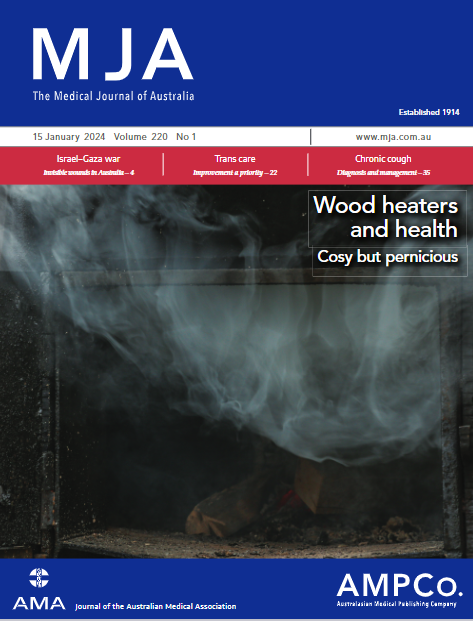Reported processes and practices of researchers applying for human research ethics approval for Aboriginal and Torres Strait Islander health research: a mixed methods study
Abstract
Objectives
To examine self-reported practices for obtaining ethics approval and reflections on ethics application processes among researchers who have conducted Aboriginal and Torres Strait Islander health and medical research.
Study design
Cross-sectional online survey.
Setting and participants
Australian-based researchers who conducted research that included Aboriginal and Torres Strait Islander people or their data.
Main outcome measures
Results from a 74-item online survey that participants completed, which included questions on demographics, ethics processes, perceptions of engagement in Aboriginal and Torres Strait Islander research, and barriers to and enablers of conducting Aboriginal and Torres Strait Islander research.
Results
Of 553 eligible researchers who commenced the survey, 439 (79.4%) answered all of the questions and were included in the analysis. A total of 327 participants (74.5%) had obtained ethics approval from an Aboriginal human research ethics committee (AHREC), 254 (57.9%) had obtained multistate ethics approvals and 270 (61.5%) had not participated in ethics training specifically for Aboriginal and Torres Strait Islander research. Participants were significantly more likely to report being very or extremely confident in managing the ethics application process if they had ≥ 6 years of research experience, had participated in training, had obtained ethics approval from an AHREC, or dedicated > 50% of their time to Aboriginal and Torres Strait Islander research. Participants acknowledged the importance of ethics approval processes in improving research practices, however they identified time and costs as barriers. Aboriginal and Torres Strait Islander participants identified that ethics processes do not always uphold Indigenous approaches or methodologies.
Conclusions
Processes for obtaining ethics approval for Aboriginal and Torres Strait Islander health and medical research do not meet contemporary research needs and would be strengthened by streamlining ethics application processes, reducing time and cost barriers, and enhancing cultural appropriateness. We join calls for the establishment of state-based AHRECs in every jurisdiction, and a national Aboriginal and Torres Strait Islander human research ethics committee to review cross-jurisdictional research.

 求助内容:
求助内容: 应助结果提醒方式:
应助结果提醒方式:


